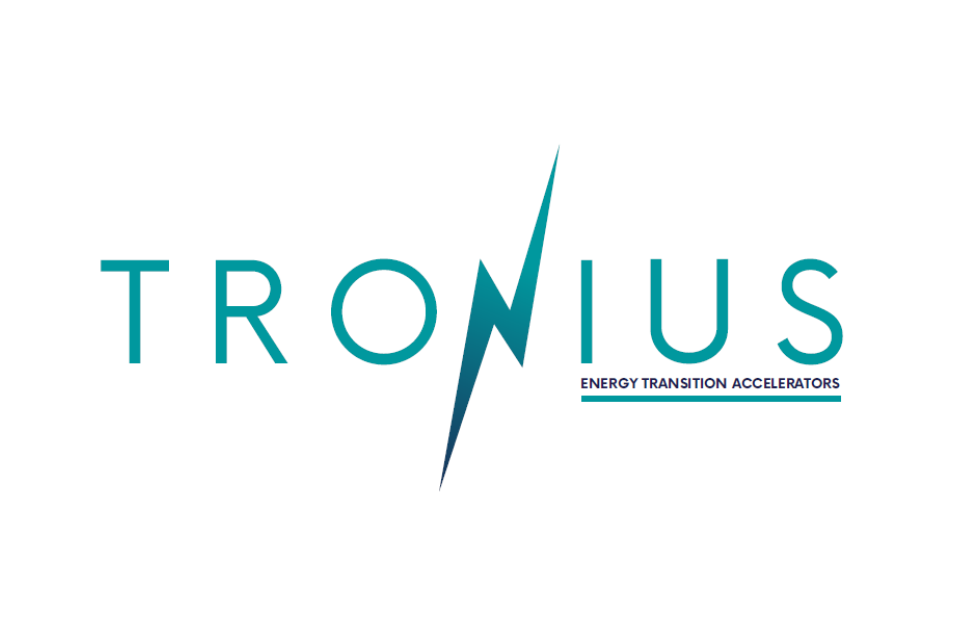Scottish-based Tronius is determined to be a driving force in accelerating Scotland’s journey to greater electrification of our roads.
And they are keen to help tackle some issues and bust a few myths around the use of Electric Vehicles (EVs) along the way…
The winners of an Edinburgh Chamber Business Award this year in the innovation category, the firm places data at the heart of helping businesses and organisations who want to engage fully, speedily and effectively in tackling climate change by moving to net zero motoring.
And they are placing data at the heart of all they do, working closely with customers to ensure decisions taken are well-informed and appropriate to their existing and future needs. Using their innovation mobile hubs, converted shipping containers which can be used to charge EVs any place and any time either by
connection to the grid or via batteries, the company can gather uniquely relevant and accurate data on behalf of its customers.
Jamie Duffy, co-founder and Director, said: “Data is at the heart of our services, and we use it to bring clarity for our customers. Working with them, we create unique and tailored data-driven solutions, utilising historical data, current live usage, and future efficiency goals. Each energy transition plan and its deliverables are actioned on timescales agreed with our clients, amending direction as the data dictates. We believe this unique systemwide approach sets us apart from all other technology providers in the
Electric car charging and energy sector.”
For example, a fleet vehicle business working with Tronius Limited – such as a courier company – could use a mobile hub as a convenient and cost-effective way to allow their vehicles to recharge, even in areas with fewer fixed EV charge points. But the real bonus lies in the data gathered, this then formulates the plan for permanent EV infrastructure installation and the scalability that is possible as demand increases. We also use live data (GIS) from the existing fleet to determine the exact match of EV required for each use case. This ultimately saves on costs, time efficiency and charging infrastructure required.
Jamie said: “We use this to fully understand our clients’ current position in relation to Electric Vehicle, renewable energy, CO2 targets among many other variables. The creation of a renewable energy transition plan (ETP) will drive all future business decisions while avoiding the multitude of pitfalls that
lie ahead as the country, and our clients, transition to e-mobility.”
While the company believes its services are relevant and important to businesses and organisations wherever they may be located, the mobile hubs can have particular relevance and provide a significant boost to rural economies via jobs and additional revenue generation.
In one area, a proposed project is underway that if approved, will see the local community benefit through shared charging revenues – a tangible benefit Tronius is keen to roll out. The firm also has plans to take the Highlander EV Charging Pod to large events such as festivals and Highland Games.
A recent survey of motorists carried out for the EV sector identified some key points and some misunderstandings:
- 53 % of 1800 motorists surveyed consider the number of charge points currently available to be insufficient
- 51% of motorists surveyed believe that electric vehicles are better for the environment than petrol and diesel-powered cars and vans
- 46% of motorists consider reduced running costs to be one of the major benefits of electric vehicle ownership
- 36% of motorists surveyed feel that the purchase price of electric vehicles when compared to their petrol and diesel counterparts is a barrier to ownership
- 34% of motorists consider that current public charging infrastructure is a major barrier to the continued increase in the number of plug-in vehicles on our roads
- Other concerns addressed by motorists include the range capabilities of electric vehicles (21%), battery life and replacement costs (10%) and increasing electricity prices (5%)
- 49% of survey respondents expressed an intention to purchase a new vehicle within the next 12 months
Jamie added: “The inability to make longer journeys in an EV is a classic misconception. Motorists who are slow to consider EVs often quote the difficulty of making, for example, the 400 mile trip to London without having to stop and recharge.
“However, who does travel 400 miles by car without stopping for 20 minutes or half an hour, this is time that can be utilised for charging at the same time. It is very easy to make that trip in an EV – and you will make it at a fraction of the cost compared to travelling in a petrol or diesel vehicle.
“The reality is more and more companies will move to EVs as a major part of their contribution
to tackling climate change, as will more and more consumers. It is a big part of the future – and businesses need to know that the decisions they make now are well-informed by relevant data unique to them and their needs.”




